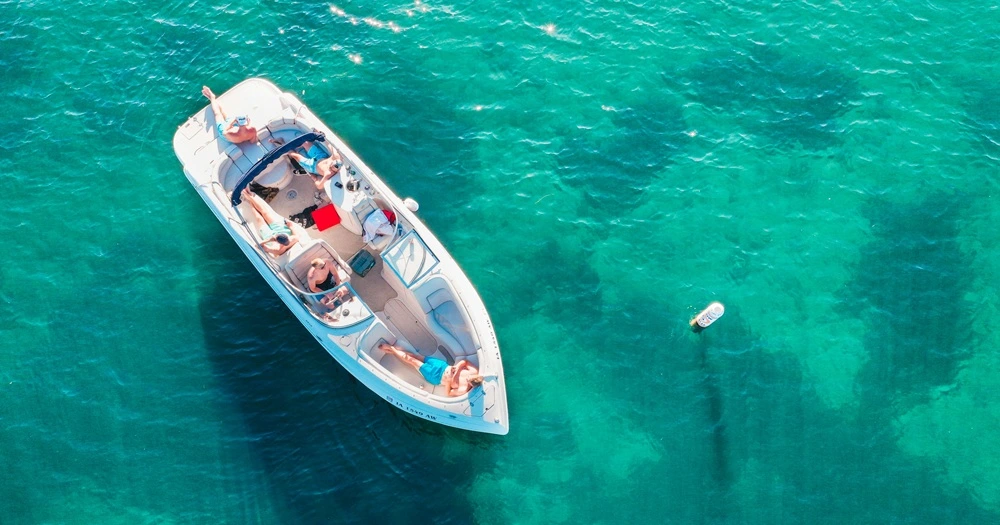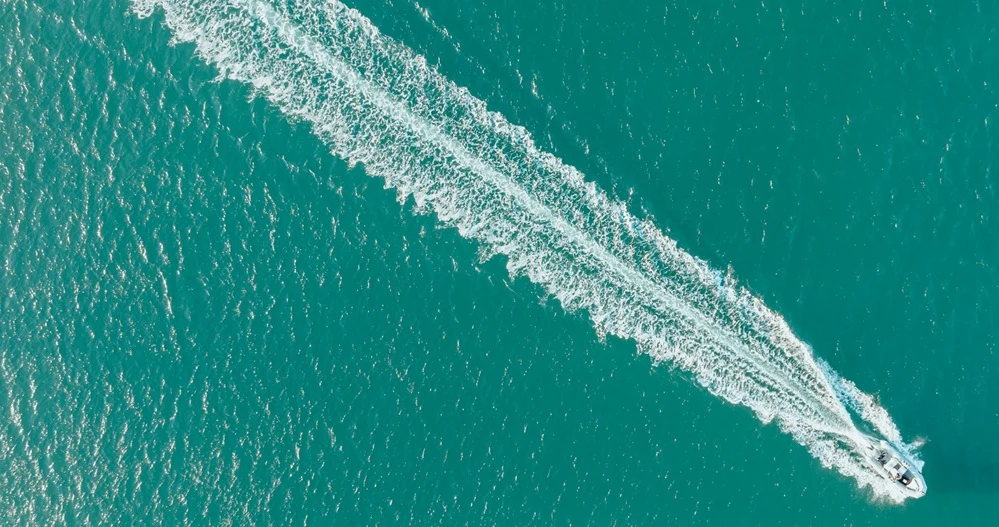Understanding Georgia’s BUI Laws
Boating under the influence carries identical penalties to DUI but affects only your boating privileges, not your driver's license. Even so, the consequences are severe, potentially including jail time, substantial fines, and loss of boating rights for up to one year.
The Georgia Boat Safety Act (O.C.G.A. § 52-7-1) was strengthened dramatically in 2013 following several tragic fatalities on Lake Lanier. The legal blood alcohol concentration (BAC) dropped from 0.10% to 0.08%, and the penalties now mirror those for DUI.
Understanding these laws and the repercussions of breaking them is crucial when you’re facing charges that could end your enjoyment of Georgia's waterways.
Georgia BUI Penalties
First BUI offense:
#details_start
- Jail time: 24 hours to 12 months
- Fines: $300–$1,000
- Boating privileges: Suspended for up to 12 months
- Community service: 40 hours minimum
- Risk reduction program: Mandatory
- Clinical evaluation: If recommended
#details_end
Second BUI offense (within 10 years):
#details_start
- Jail time: 72 hours minimum, up to 12 months
- Fines: $600–$1,000
- Boating privileges: Suspended for up to 12 months
- Community service: 240 hours minimum
- Risk reduction program: Mandatory
- Clinical evaluation: Required
#details_end
Third BUI offense (within 10 years):
#details_start
- Jail time: 15 days minimum, up to 12 months
- Fines: $1,000–$5,000
- Boating privileges: Suspended for up to 12 months
- Community service: 240 hours minimum
- Risk reduction program: Mandatory
- Clinical evaluation: Required
- Habitual violator status: Applied to boating record
#details_end
Fourth or subsequent BUI offense:
#details_start
- Jail time: 90 days minimum, up to five years
- Fines: $1,000–$5,000
- Boating privileges: Extended suspension or permanent loss
- Community service: 480 hours minimum
- Risk reduction program: Mandatory
- Clinical evaluation: Required
- Permanent felony record: Could affect employment and housing
#details_end
Lake Lanier BUI Enforcement Patterns
Lake Lanier is the site of a substantial portion of all BUI arrests in Georgia, making it one of the state's primary enforcement zones. Understanding the patrol patterns and enforcement tactics of the Department of Natural Resources (DNR) is therefore crucial for mounting an effective defense.
Peak Enforcement Periods
- Memorial Day weekend: Historically sees numerous BUI arrests on Lake Lanier alone, with DNR increasing its number of active patrol boats during the three-day period.
- Fourth of July weekend: The busiest enforcement period, typically resulting in more than a dozen arrests annually.
- Labor Day weekend: The final major enforcement push, often producing a wave of arrests as the summer boating season concludes.
- Operation Dry Water: National BUI enforcement campaign that intensifies patrols in late June, leading up to Independence Day.
Common Arrest Locations
- Cocktail Cove and Sunset Cove: Rangers often patrol these popular areas, where hundreds of boats raft together, at times when drunk boaters navigate back to marinas.
- Waterside restaurants: DNR monitors establishments like The Twisted Oar, Pig Tales, and LandShark Bar & Grill, watching for impaired operators departing after drinking.
- Boat ramps: Nighttime enforcement focuses on ramps where intoxicated boaters prepare to trailer vessels and drive home, creating the dual risk of BUI and DUI.
#cta_start
Don't Let BUI Charges Ruin Your Fun
Georgia’s Department of Natural Resources builds cases differently from the police. You need an attorney who understands local marine enforcement and Hall County court procedures.
#cta_end
The Critical 10-Day Administrative Deadline
It’s important to note that you have only 10 business days from your BUI arrest to request an administrative hearing with the Georgia Department of Natural Resources. Missing this deadline will result in an automatic one-year suspension of your boating privileges.
Administrative vs. Criminal Cases
Boating under the influence charges create two separate legal proceedings:
Administrative case: DDS can suspend boating privileges based solely on an arrest, regardless of the outcome of the ensuing criminal case. This proceeding uses a lower standard of proof and different rules than the criminal court.
Criminal case: Hall County State Court or Superior Court (depending on the charges) will handle the criminal prosecution with standard "beyond a reasonable doubt" requirements.
These cases proceed independently, meaning you can lose the administrative hearing but win the criminal case, or vice versa. Both require immediate attention and skilled legal representation.

Administrative Hearing Process
The administrative hearing will address four specific issues:
- Whether the DNR ranger had reasonable grounds for the arrest.
- Whether you were properly advised of the implied consent consequences.
- Whether the breath or blood test was administered correctly.
- Whether you refused testing or were physically unable to complete it.
Success at this hearing will preserve your boating privileges regardless of how your criminal case plays out. However, it’s essential that you act within the 10-day window — no exceptions exist.
How BUI Cases Differ from DUI Cases
While the legal consequences of BUI in Georgia are largely the same as those for DUI, the fact that these charges originate on the water creates unique challenges that require specialized defense strategies.
Marine Environment Factors
"Sea legs" effect: Extended time on the water can affect balance and coordination, making field sobriety tests unreliable. DNR rangers often fail to account for this when administering tests.
Sun exposure and dehydration: Boating conditions naturally create symptoms that mimic intoxication: bloodshot eyes, impaired coordination, altered speech patterns, etc. These environmental factors can provide powerful defensive arguments.
Wave motion impact: Boats naturally rock and sway, invalidating balance-based sobriety tests like walk-and-turn and one-leg stand. DNR uses specialized "seated battery" tests for which many rangers lack proper training.

Unique Field Sobriety Tests
DNR rangers employ a trio of boat-specific testing protocols:
- Horizontal gaze nystagmus (HGN): Eye tracking remains standard, but environmental factors (sun glare, wind) can affect accuracy.
- Finger to nose: Replaces the walk-and-turn test since boats don't provide stable walking surfaces.
- Palm pat: Substitute for the one-leg stand, testing hand-eye coordination instead of balance.
These special tests require different training and administration procedures. Many DNR rangers receive inadequate instruction, allowing our seasoned attorneys to challenge the results.
Constitutional Search Issues
Safety inspections vs. BUI investigations: DNR can conduct random safety checks without probable cause, but these can’t become fishing expeditions for evidence of BUI. We challenge investigative overreach that violates Fourth Amendment protections.
Marine jurisdiction questions: Lake Lanier spans multiple counties (Hall, Forsyth, Gwinnett, Dawson, Lumpkin), creating jurisdictional complexities that skilled legal professionals can exploit.
Potential BUI Defenses We Can Use

Environmental Strategies
Weather conditions: Bright sunlight, wind, and extreme temperatures can produce effects that resemble intoxication. We can document the weather conditions during your arrest to establish an alternative explanation for the observed symptoms.
Boat motion: Adjustment to the motion of watercraft can affect even those who haven’t been drinking. We’ll present expert testimony explaining how normal physiological responses to marine environments invalidate field sobriety testing.
Medical conditions: Inner ear problems, seasickness medication, and other conditions can impact balance and coordination. We’ll thoroughly investigate and present any aspects of your medical history that explain poor test performance.
Technical Challenges
Equipment calibration: Breath-testing devices require regular calibration and maintenance. Our team will examine DNR equipment records to look for violations that warrant evidence suppression.
Chain of custody: Blood testing in BUI cases involves handing off evidence from boat to hospital to lab. We can identify gaps in custody documentation that undermine the reliability of the results.
Insufficient officer training: Many DNR rangers receive minimal BUI investigation training compared to police DUI instruction. We know how to point out inadequate preparation and improper administration.

Constitutional Violations
Illegal detention: DNR must have reasonable suspicion to turn a routine safety inspection into a BUI investigation. We fight back against fishing expeditions that overstep lawful authority.
Miranda rights: Arrests and investigations must come with specific legal warnings. We can suppress statements obtained through improper questioning.
Search and seizure: Warrantless searches of boats have strict constitutional limitations. Our lawyers will call into question any evidence obtained through illegal searches.
Why Lake Lanier BUI Cases Are Different
Lake Lanier's unique characteristics create defense opportunities that are unavailable in other jurisdictions. Here are a few key features:
#spoilers_start
Federal vs. State Waters
Lake Lanier is a federal Army Corps of Engineers project. While Georgia law applies to BUI prosecutions, federal regulations govern certain activities and enforcement procedures, raising tricky jurisdictional questions.
Multi-County Complications
The lake spans five counties, but Hall County handles most prosecutions through the Northeastern Judicial Circuit. Understanding these jurisdictional patterns can help your attorney develop a strategic approach to your case.
High-Profile Enforcement
Lake Lanier's 10–12 million annual visitors make it a prime zone for BUI enforcement. DNR often prioritizes high-visibility arrests during peak seasons, sometimes rushing investigations and cutting procedural corners, which we can exploit.
Seasonal Factors
The summer season stretches DNR resources thin, leading to training shortcuts and procedural errors that create opportunities for defense. Additionally, Georgia's unpredictable weather can provide natural explanations for substandard performance during sobriety testing.
#spoilers_end
The Child Endangerment Enhancement
Having children under 14 on board during a BUI arrest results in separate child endangerment charges. Each child creates an independent charge that carries additional penalties:
- One child: Separate misdemeanor, with jail time of up to 12 months.
- Multiple children: Multiple charges can stack, putting the suspect in felony territory.
- No merger rule: Child endangerment charges are made independently of BUI.
This enhancement can transform a simple BUI into a complex multi-charge case requiring sophisticated defense strategies. For this reason, family boaters face exponentially higher risk that demands dependable legal representation.
Our BUI Defense Process

Evidence Preservation
Video documentation: DNR patrol boats carry recording equipment, but footage gets recycled quickly. We’ll immediately demand the preservation of any arrest videos depicting field sobriety tests and environmental conditions.
Weather data collection: Our team will gather detailed weather reports from your arrest date, documenting sun, wind, temperature, and wave conditions that may explain poor test performance.
Witness identification: Other boaters often observe arrests but leave before providing their contact information. We may be able to identify and interview potential witnesses while their memories are fresh.
Technical Investigation
Equipment analysis: We’ll examine DNR’s breath-testing equipment, reviewing calibration records, maintenance logs, and operator training documentation to pinpoint technical violations.
Training records: We’ll scrutinize the arresting officers' BUI training, potentially finding deficiencies in marine-specific instruction that undermine their credibility.
Procedural review: We’ll analyze every aspect of your arrest against DNR protocols to identify violations that call for evidence suppression or outright case dismissal.
Administrative Hearing Preparation
10-day deadline management: Our team will handle all administrative hearing paperwork within the critical 10-day window, preserving your boating privileges regardless of how your criminal case goes.
Hearing strategy: We know how to effectively challenge DNR evidence, often achieving favorable outcomes and maintaining our clients’ boating rights during criminal proceedings.
Appeals process: If your administrative hearing is unsuccessful, we can pursue appeals through appropriate channels, continuing the fight for your marine privileges.
Protect Your Boating Rights — You Only Have 10 Days!
Former prosecutor Blake Poole and former judge Matthew Leipold defend clients charged with boating under the influence with unmatched experience and insider knowledge of the local courts. Free consultation available 24/7.
























.avif)
